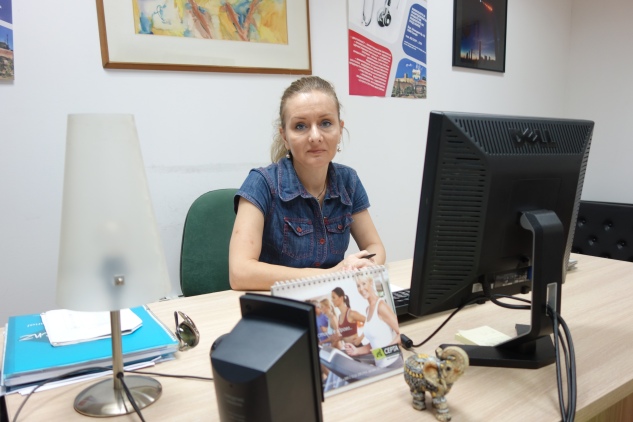Elenora: “We need a shelter in the centre of Skopje”
Before I visit Elenora, head of the unit for social, child and health protection, in the city of Skopje, I have already heard a lot about the role of the civil service in Macedonia. That it is allegedly one of the largest in the world (in relation to the size of its population), that it is a relatively secure career which many Macedonian university graduates aspire to, and said in more sardonic company: that it is the biggest national NGO.
The aim of Elenora’s unit however, is to help the vulnerable and marginalised in the community of Skopje. More specifically:
“We work with homeless people, street children, those without parents, people with addictions and those with different kinds of disabilities.” Their unit’s focus is on creating policy, which is then implemented by NGOs who work directly with the beneficiaries.
Elenora has agreed to meet me with Klimentina, from Lice v Lice, to talk about the unit’s work in relation to homelessness. According to Elenora, the unit (which represents the city of Skopje, rather than the rest of Macedonia) annually puts forward about 15,000euros towards projects for homeless people.
This is broken down into: 9000 euros towards the Momin Potok shelter, 3000euros towards Lice v Lice and another 3000euros spent more generally on supporting projects in and around soup kitchens etc. Aside from Lice v Lice, it’s not clear whether this money is allocated with the intention to directly tackle the (oft quoted in the UK) ‘root causes’ of homelessness, or if it falls under the category of just generally helping the poor.
I ask Elenora if there is a national strategy on homelessness, but instead she replies that there is a national strategy on poverty, of which homelessness is a part. She doesn’t elaborate on this.
What does she think could be improved about the current provision?
“I think there is a necessity for a center in the central part of Skopje,” she says, referring to the distance between the Red Cross’s homeless drop-in station Momin Potok and Skopje city.
It’s a good point – why is the center …not in the centre?
“Generally we have a problem with public space in Skopje,” she says. “We don’t have space which is available for cultural programs, not just social. Generally speaking, I think this is a problem. This cooperation with the Red Cross is very good because they have their own buildings.”
